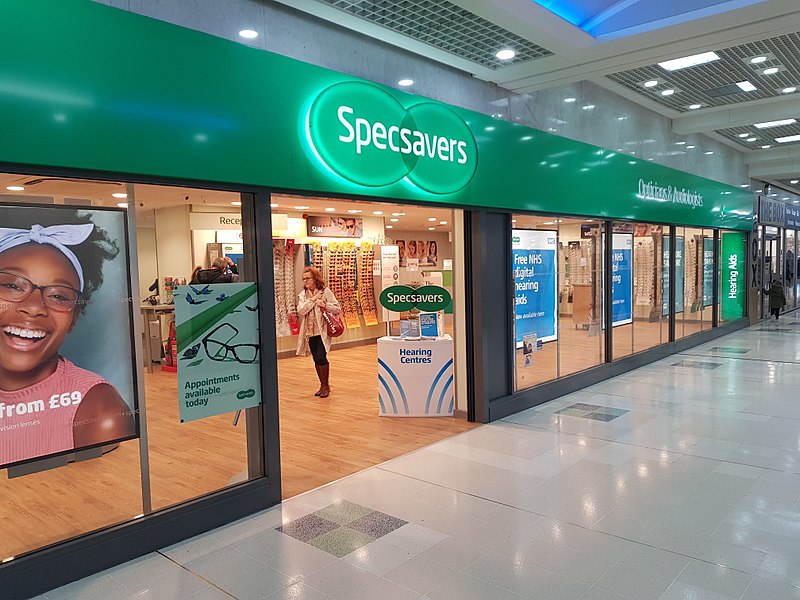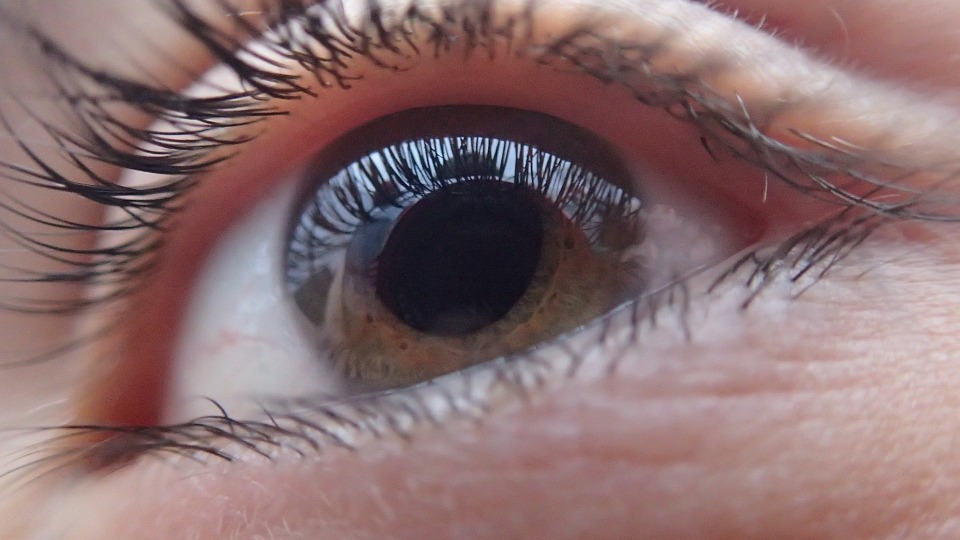
Image from Salford Specsavers – permission from Katie Rattigan – PR.
Mahmoud Moustafa, clinical director at Specsavers in Salford, is stressing the importance of regular eye tests to check for the world’s third largest cause of blindness, Glaucoma.
In the city of Salford, there are currently 2,070 people living with Glaucoma.
Glaucoma is an eye disease that can affect anyone and is the third largest cause of blindness in the world.
There are two types of Glaucoma; chronic glaucoma develops slower and acute glaucoma develops rapidly, with a sudden, painful build-up of pressure in the eye.
The condition is referred to as the silent thief of sight due to the gradual worsening of the condition when not treated.

From March 10 to March 17 it is National Glaucoma Awareness Week, an initiative created by World Glaucoma Association and the World Glaucoma Patient Association, with hopes of raising awareness of the condition.
Throughout the week, organisations such as Specsavers in Salford will be sharing campaigns, posters and leaflets about the eye condition in order to inform more people.
Research confirms that men are 16% more likely to lose their sight than women due to the fact that they generally do not seek medical help as quickly as women.
Specsavers in Salford are highlighting the importance of regular eye tests in order to detect early signs and symptoms of the condition, as well as calling attention to the common risk factors associated with it.
Today marks the beginning of #GlaucomaWeek. Watch Alan’s story to find out how regular eye tests can help detect early signs of the condition #EyeHealthMatters Find out more here: https://t.co/Gkbf9Jz5ww pic.twitter.com/E4hLvH8tA2
— Specsavers (@Specsavers) 10 March 2019
Mahmoud Moustafa, clinical director at Specsavers in Salford, says: “Glaucoma occurs when naturally-occurring fluid inside the eye does not drain properly causing a build-up of pressure.
“The condition often affects both eyes, usually to varying degrees, however, there are two types – chronic glaucoma which develops slowly and acute glaucoma which develops rapidly with a sudden, painful build-up of pressure in the eye.”
Optometrists will test the pressure in the eye using a tonometer. This is useful in identifying people who are at risk of developing glaucoma or who already have it.
Blurred vision is also a sign that you have or are developing glaucoma.
Mahmoud says: “With chronic glaucoma, the visual loss can initially be very subtle and occurs just beyond your central vision, progressing slowly inwards towards your central vision and outwards into the periphery.
“Most patients will not be aware of this visual loss due to the way the eyes’ visual fields overlap, compensating for one another.
“The way this is detected by your optometrist is through the use of a visual field test. During this test you will be shown a sequence of light spots and asked which ones you can see.
“Any very subtle blind spots, which you will probably be unaware of, can be an indicator of the condition.
“However, acute glaucoma is often sudden and painful and may present with other symptoms including blurred vision and halos around lights.”

A build-up of eye pressure may cause damage to the optic nerve and nerve fibres from the retina. This is referred to as optic nerve damage.
Mahmoud says: “This can be assessed in a variety of ways during your examination, but the real detail of a customer’s eye health will come from a photograph taken with a retinal camera.
“Digital retinal photography captures an image of your optic nerve which can be used as reference for future visits and to track any changes that may occur over time.”
A lot of the time, genes play a big part in suffering from glaucoma. Mahmoud adds: “Those who have black–African heritage or who have higher levels of short-sightedness are also more at risk.
“Your age also plays a big part,” says Mahmoud. “Two in every 100 people over 40 are affected by the condition.
“The good news is glaucoma can generally be treated effectively if detected early and in most cases, a daily eye drop can be used for treatment.”
In Salford, all Specsavers optometrists have taken advanced qualifications in glaucoma management.
This means that their skills will be improved and many front of house staff have been given extra training in order to offer better support to customers with glaucoma, including how to apply the eye drops effectively.
Mahmoud concludes: “Our sight is precious. We ensure we visit our dentist every six months, and a sight test every two years should also be on everyone’s to do list.
“It can, quite literally, save your sight.”














Recent Comments